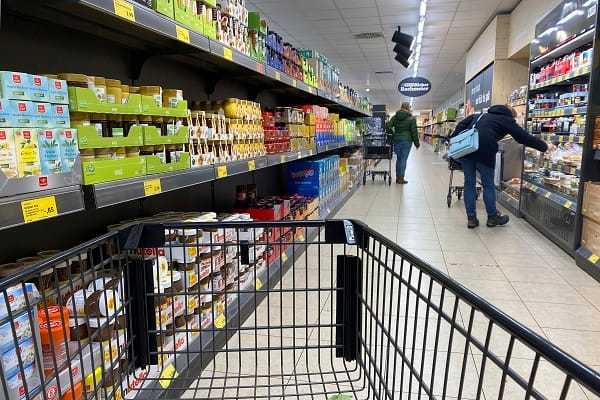ZIPZERO, the app that rewards users with cash toward utility bills every time they scan a receipt or make an online purchase, commissioned new research to uncover how rising food prices have influenced consumer shopping habits.
Over the past 12 months two-in-five (43%) switched to cheaper brands, one-in-four (25%) switched to a cheaper supermarket and one-in-five (18%) started using coupons/loyalty schemes/reward cards.
One-in-five (21%) are buying less meat or fish, with one-in-four (25%) are buying more frozen food and 30% are buying more food from the reduced section.
37% have cut back on premium or luxury food products, meanwhile, 58% believe that supermarkets are being greedy by raising food prices.
The research, conducted by Opinium, surveyed a nationally representative sample of 2,000 UK adults. It revealed that over the past 12 months two-in-five (43%) have switched to cheaper brands to reduce food expenditure, while one-in-four (25%) have switched to a cheaper supermarket.
Meanwhile, 18% have looked to supermarket loyalty programmes, reward schemes and coupons to cut food costs.
Beyond supermarket and brand loyalty, the research also revealed that what consumers are buying has also changed as prices have risen. 21% are buying less meat or fish, 25% are buying more frozen food and 30% are making more use of their supermarket’s reduced section. In addition, 37% have cut back on premium or luxury food products.
When asked where the blame for high food prices lies, many consumers feel supermarkets are at fault – the majority of Britons (58%) agree that supermarkets are acting greedily by raising their prices.
Food inflation is currently at record levels, with the latest data from the Office for National Statistics showing that average food prices in February 2023 rose by 18.2% in the 12 months prior.
Mohsin Rashid, CEO of ZIPZERO, said: “Sky-high food inflation has invariably shifted consumer habits. Out of necessity, Britons have been forced to drastically change where they shop, with one-in-four switching to a cheaper supermarket.
“Indeed, what they are buying is changing too. Whether it be trying cheaper brands, turning to a more vegetarian diet or stocking up on frozen goods, British consumers are finding savvy solutions to reduce their food spending. Yet, ultimately, there are only so many cost-cutting measures that Britons can take.
“While it is in the government’s hands to tackle inflation for a long-term resolution, supermarkets have a role to play in the meantime. Those who continue to raise prices risk cutting off the hand that feeds and many may find their customers turning to cheaper alternatives as a result.
“To stay competitive, supermarkets must make every attempt to keep prices affordable and fair. A novel way to achieve this is to unlock new revenue opportunities for consumers in line with their everyday purchases. As the ZIPZERO platform demonstrates, such solutions are available, providing innovative ways to support customers throughout this challenging economic period.”






Leave a Comment